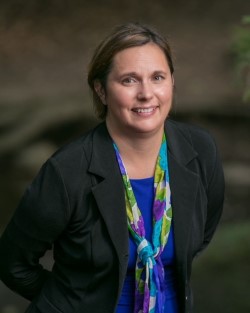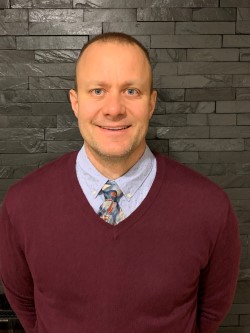Want the opportunity to attend virtual WEF Conferences without having to pay for travel and lodging?
If so, come join other WEF colleagues at the 2021 Residuals and Biosolids Virtual Event! With the reality of many people still working from home or juggling the responsibilities of working on site, training sessions that allow you to set aside a few hours over several days (instead of being “checked out” of work for multiple days) are a value proposition.
The Water Environment Federation’s 2021 Residuals and Biosolids Conference will be fully virtual. Over the last year, WEF has presented several conferences virtually and the Residuals and Biosolids Virtual Event will draw on those successes by focusing on engaging topics and tailoring delivery to better meet the needs of virtual participants. The event will have relevant live sessions as well as pre-recorded sessions where the presenter will be online during the training to answer questions in real time via chat. These sessions are available at a specific date and time to accommodate the streaming Q&A. Lab workshops will be easier to view and a virtual biosolids plant tour will even be available!
Some of the topics to be covered include:
- WEF’s new biosolids toolkit: Learn about the new guide that will help you present biosolids in a fact-based way to the media and the public and help biosolids managers demystify myths and misunderstandings of biosolids use.
- Dewatering: A three-hour pre-conference live virtual workshop will cover optimization, cost reduction, and the latest dewatering research through a series of speakers, panel discussions and small group interactions.
- Session 1 on May 11 will cover PFAS and contaminants of concern. One of the presentations quantifies the risks of emerging organic contaminants (including PFAS) based on their fate and behavior in full-scale sludge treatment systems and land application.
- Session 5 on May 12 will be a live Zoom panel discussion covering land application and surface disposal options. A 22-year project on the question “Can biosolids improve soil health?” will be presented, along with a review of the regulatory and litigation issues around land application (including PFAS), and challenges faced by Allegheny County (Pa.) Sanitary Authority with landfill disposal.
Along with the highlights above, additional pre-recorded interactive content will be presented on trending biosolids topics of concern, and attendees can engage with presenters and ask questions using the chat function. Here are some notable sessions:
- Session 2: “Innovative Biosolids Process Enhancements” will take on issues like dewatering, thickened waste, and activated sludge from a biological phosphorus removal process.
- Session 3: “Optimizing Digestion and Co-Digestion” will present enhancement opportunities such as microbial acclimation and microaeration, as well as source separated food waste and resource recovery.
- Session 4: “Odor Control and Digestion Intensification Solutions” will tackle odor control and thermal hydrolysis pretreatment.
- Session 6: “Thermal Process Optimization” will report on performance at two incineration facilities.
- Session 7: “Sustainability: Planning, Action, and Communication” will look at zero waste, renewable natural gas, and a market analysis for Class A biosolids.
Learn more and register for the 2021 Residuals and Biosolids Virtual Event here. We can’t wait to “see” you there!


 Kathryn Crestani is the Enterprise Biosolids and Residuals Superintendent at Northeast Ohio Regional Sewer District (NEORSD). She directly oversees the transformation of 430 wet tons/day of biosolids into 10 million kwh of power annually, and 120 dry tons/day of ash that is recycled into a soil blend for the local landscaping market. Ms. Crestani is a founding member of the NEORSD Women’s Employee Resource Group and is in her second year as an employee partner with the Good Neighbor Ambassador Program. She is a member of WEF, Ohio WEA and the American Water Works Association.
Kathryn Crestani is the Enterprise Biosolids and Residuals Superintendent at Northeast Ohio Regional Sewer District (NEORSD). She directly oversees the transformation of 430 wet tons/day of biosolids into 10 million kwh of power annually, and 120 dry tons/day of ash that is recycled into a soil blend for the local landscaping market. Ms. Crestani is a founding member of the NEORSD Women’s Employee Resource Group and is in her second year as an employee partner with the Good Neighbor Ambassador Program. She is a member of WEF, Ohio WEA and the American Water Works Association. Brandon Fox is the Wastewater Plant Manager for the City of Columbus (Ohio) Jackson Pike Wastewater Treatment Plant. He oversees the operation, maintenance and laboratory for the wastewater plant as well as maintenance and operation of the city’s sanitary and stormwater pump stations. He holds a Class 4 Wastewater Treatment Professional Operator License and a Class 3 Water Treatment Professional Operator License. He earned a bachelor of science degree in agricultural education from The Ohio State University.
Brandon Fox is the Wastewater Plant Manager for the City of Columbus (Ohio) Jackson Pike Wastewater Treatment Plant. He oversees the operation, maintenance and laboratory for the wastewater plant as well as maintenance and operation of the city’s sanitary and stormwater pump stations. He holds a Class 4 Wastewater Treatment Professional Operator License and a Class 3 Water Treatment Professional Operator License. He earned a bachelor of science degree in agricultural education from The Ohio State University.